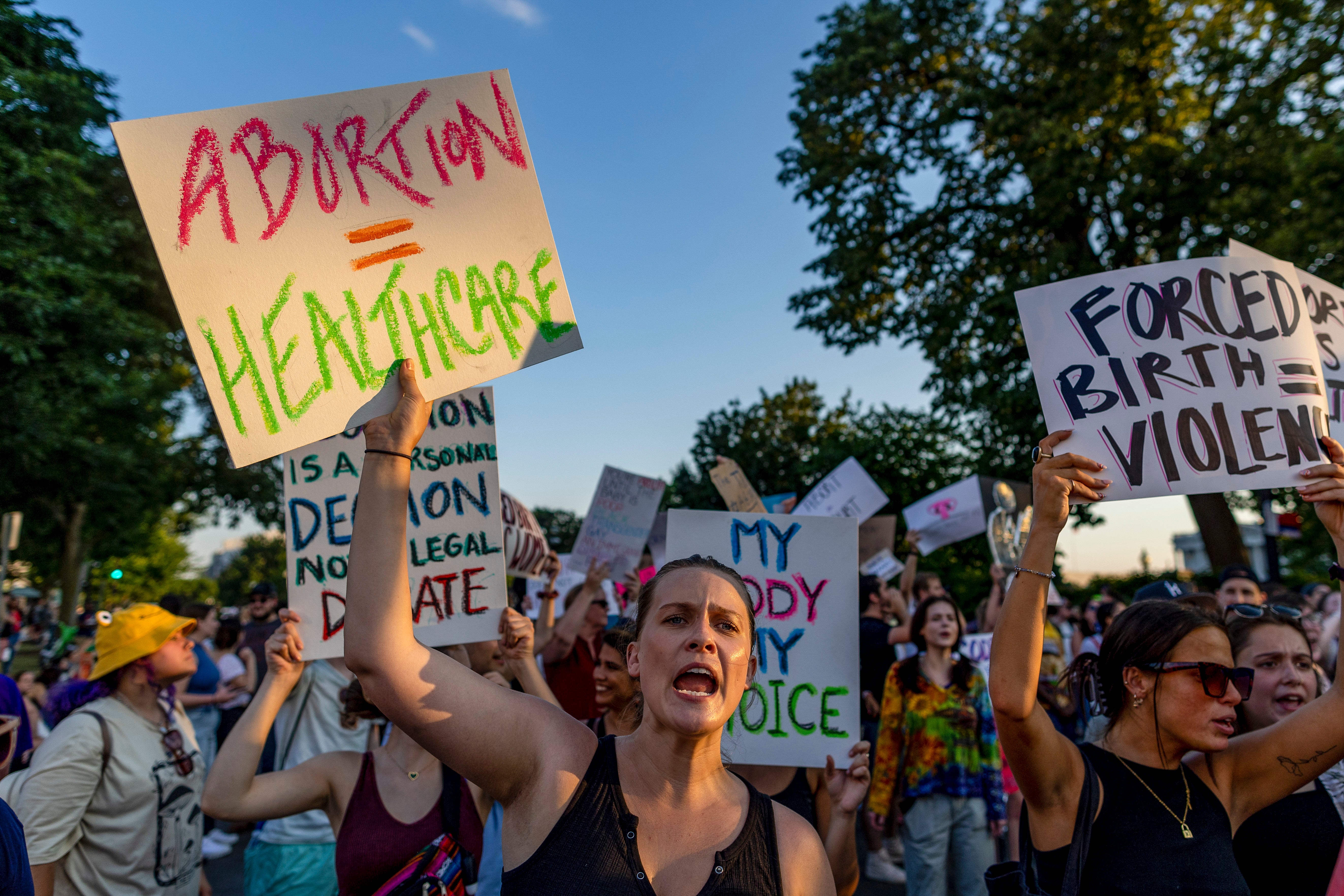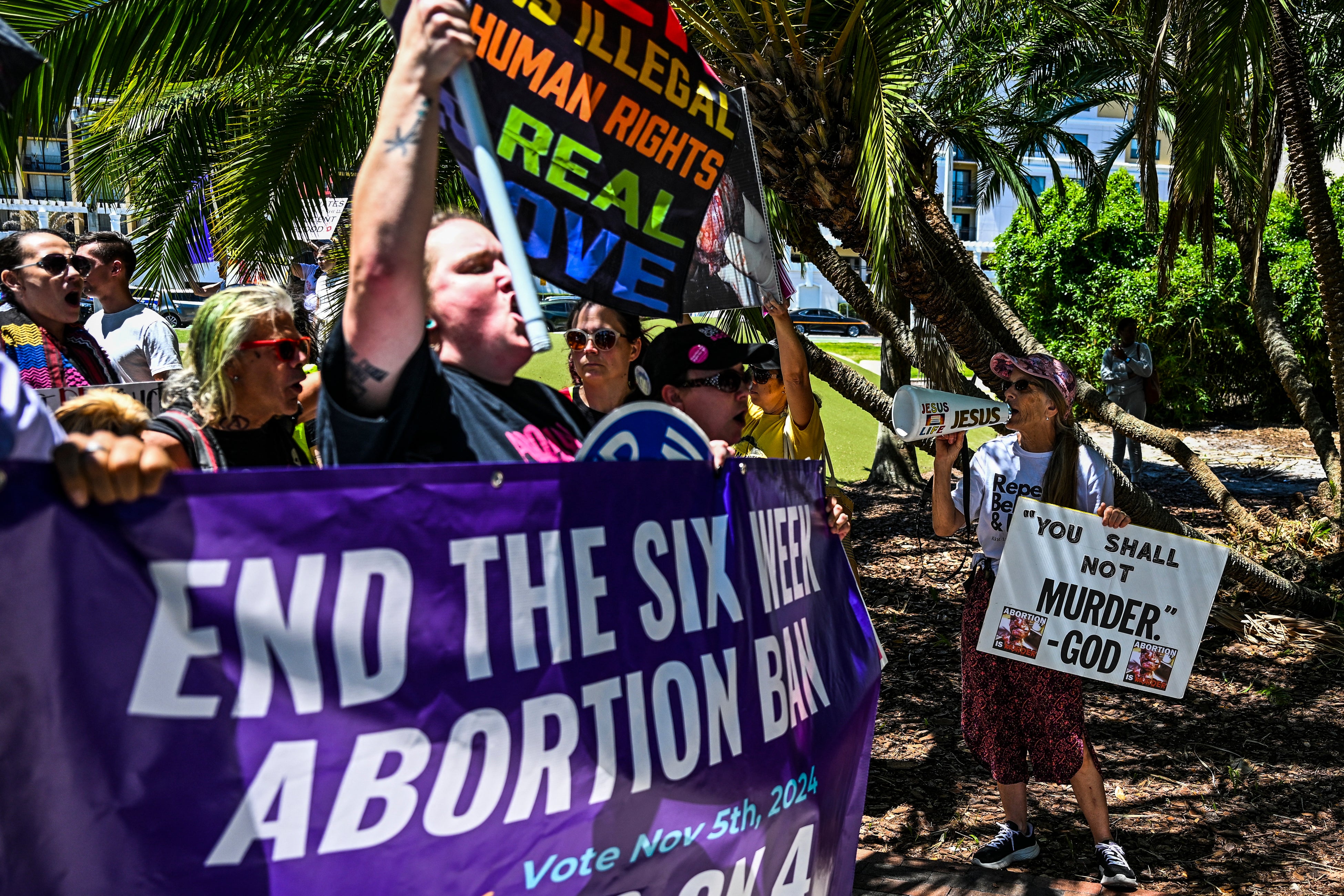It’s been two years since Roe v Wade was overturned. Here’s how far we’ve gone back
Abortion is banned with few exceptions in 14 states - all of which are Republican-controlled, writes Katie Hawkinson

Your support helps us to tell the story
From reproductive rights to climate change to Big Tech, The Independent is on the ground when the story is developing. Whether it's investigating the financials of Elon Musk's pro-Trump PAC or producing our latest documentary, 'The A Word', which shines a light on the American women fighting for reproductive rights, we know how important it is to parse out the facts from the messaging.
At such a critical moment in US history, we need reporters on the ground. Your donation allows us to keep sending journalists to speak to both sides of the story.
The Independent is trusted by Americans across the entire political spectrum. And unlike many other quality news outlets, we choose not to lock Americans out of our reporting and analysis with paywalls. We believe quality journalism should be available to everyone, paid for by those who can afford it.
Your support makes all the difference.Two years ago today, the Supreme Court overturned Roe v Wade, the nearly 50-year-old case that granted the right to an abortion nationwide.
Abortion access changed overnight in some places. Several Republican-controlled states immediately enacted “trigger laws”, placing restrictions on abortion and limiting access.
While the average number of abortions has not changed since the court’s 2022 ruling, pregnant people now face significant barriers to abortion access which can have life-altering, if not life-threatening, consequences.
Here’s what we’ve lost in the two years since Roe v Wade was overturned.
Abortion banned or heavily restricted in 21 states
Abortion is banned outright, with few exceptions, in 14 states, all of which are Republican-controlled.
In Florida, Georgia and South Carolina, abortion is banned after six weeks. Most people don’t know they are pregnant until their first missed period, meaning many don’t find out until after that six-week cut-off.
Nebraska and North Carolina have a 12-week ban, while Arizona bans abortion at 15 weeks and Utah bans the procedure at 18 weeks.
Three states — Iowa, Montana and Wyoming — introduced abortion bans that have been blocked by judges as they undergo legal challenges.
Pregnant people face threats to their health under restrictive abortion bans
In states where there are little to no exceptions to abortion bans, people are being forced to continue with life-threatening pregnancies.
Breanna Cecil, 34, previously told The Independent that she was denied an abortion in Tennessee for a pregnancy that ultimately destroyed her ability to have children in the future.
“The state of Tennessee took my fertility from me,” Cecil told The Independent last month. “[State lawmakers] took away my opportunity to have a family like my own biological family because of these horrible laws that they put in place.”
Kate Cox, from Texas, grabbed national attention after she was denied an abortion despite severe medical complications.

During her third pregnancy, Cox discovered she was carrying a child diagnosed with Trisomy 18, a life-threatening chromosomal disorder that often results in a miscarriage or stillbirth. Doctors also told her the condition could leave her infertile.
But Texas did not allow her to have an abortion 20 weeks into her pregnancy. Cox unsuccessfully sued the state and ultimately had to travel to get the procedure.
Last week, Cox appeared on CNN to announce she is pregnant again.
“It’s such a hard feeling because so much happiness, but also being so scared at the same time,” Cox said. “I live in a state where emergencies in pregnancy can happen in a moment, and if I have an emergency, my first call would be my lawyer and my second call would be my doctor. How upside down is that?”
Pregnant people forced to travel hundreds of miles to access abortions
People living in more than 700 US counties must travel more than 200 miles to access their nearest abortion clinic, according to the Myers Abortion Facility Database by Middlebury College.
Residents of some southern US counties would have to travel more than 700 miles, Axios reports. In June 2021, a year before Roe v Wade was overturned, residents of just 216 counties had to travel the same distance.

Take Florida, for example. Last month, a ban on abortion after six weeks of pregnancy went into effect. With neighboring states of Alabama, Georgia and South Carolina enforcing similar bans, Floridians who are past the six-week mark of pregnancy must travel for abortion access.
The nearest state with looser restrictions is North Carolina, which bans abortion after 12 weeks. If a person in Florida is more than 12 weeks pregnant and needs an abortion, their closest option is Virginia. A car ride from Miami to Richmond takes more than 13 hours.
This disparity is why many advocates were particularly concerned about FDA v Alliance for Hippocratic Medicine, a case before the Supreme Court earlier this year that challenged access to the abortion drug mifepristone. The medication can be delivered by mail, making it a key resource to those who face barriers to abortion access.
The Supreme Court unanimously ruled to maintain FDA approval of mifepristone earlier this year. As a result, mifepristone remains fully approved and available through telehealth prescription and mail delivery to patients.
However, the challenge is expected to appear before the nation’s highest court in the future, meaning there may be future threats to mifepristone access.
Join our commenting forum
Join thought-provoking conversations, follow other Independent readers and see their replies
Comments